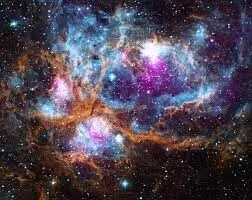
Scientists want to listen to whispers of the universe, turn data into sound
text_fieldsAstronomers are ready to take space science from visuals to sounds. Some scientists are turning the available data into sound so that they can listen to the "whispers of the universe".
Experts are relying on a process called data sonification which is commonly used to help the visually impaired understand plots and images.
Scientists think that data sonification will help them filter out the noise and understand desired sounds. It will be similar to hearing a recognisable voice or language in a noisy room, reported The Conversation.
Fast radio bursts lasting milliseconds are detected halfway across the universe but scientists have no clue what is causing them. Detecting them in other wavelengths will provide more insight into their nature. Experts believe data sonification and filtering out the noise will make it possible.
The paper is published in the journal Nature Astronomy.
While astronomers have been able to collect a ton of data about celestial events like the death of stars, mergers of black holes, and gravitational waves, the majority of these events are "faint bursts". If the computer is given a template signal, it can detect them.
However, if the event or signals deviate from the template, computers are not likely to find them. These missed events are believed to provide more insight into the nature of the universe. Data sonification can verify and identify these signals.
Experts are banking on data sonification because humans are able to interpret audio information faster than visual information. The ear can recognise more pitch levels than the eye can recognise levels of colour. Scientists are also looking forward to understanding the relationships between many different features or properties in sound.























